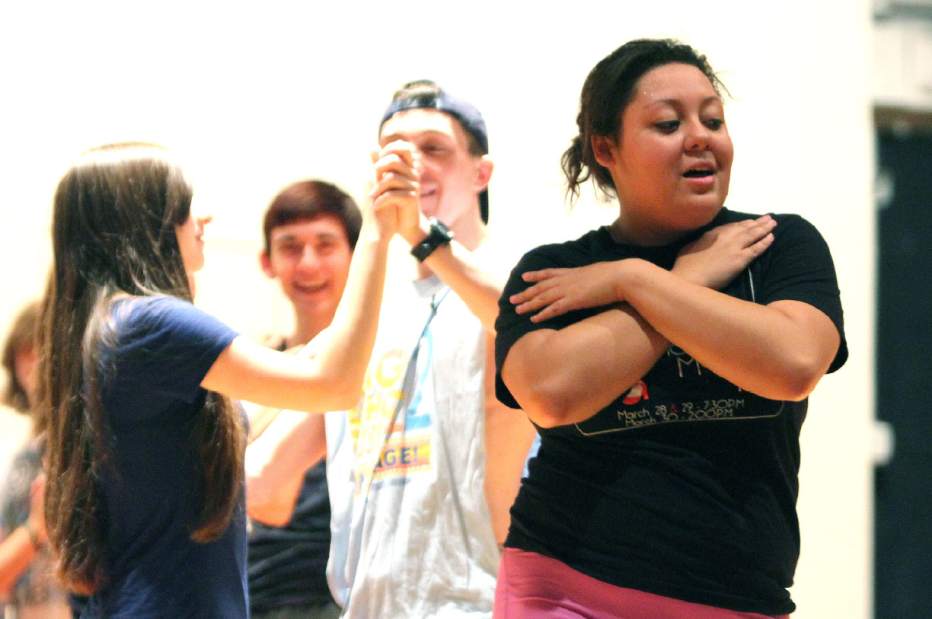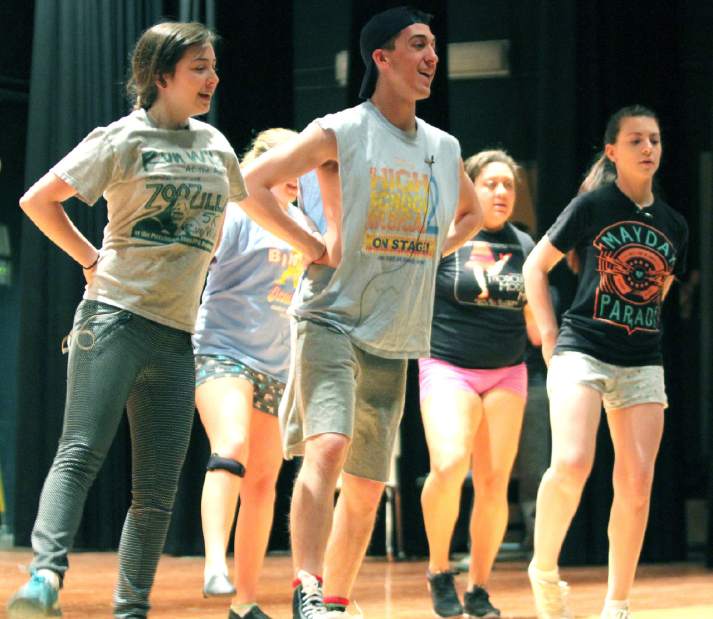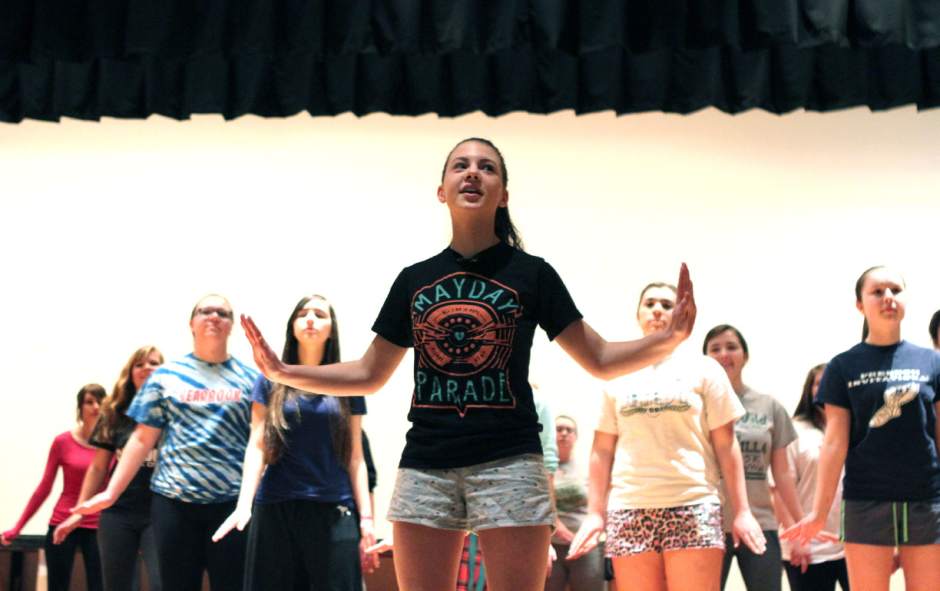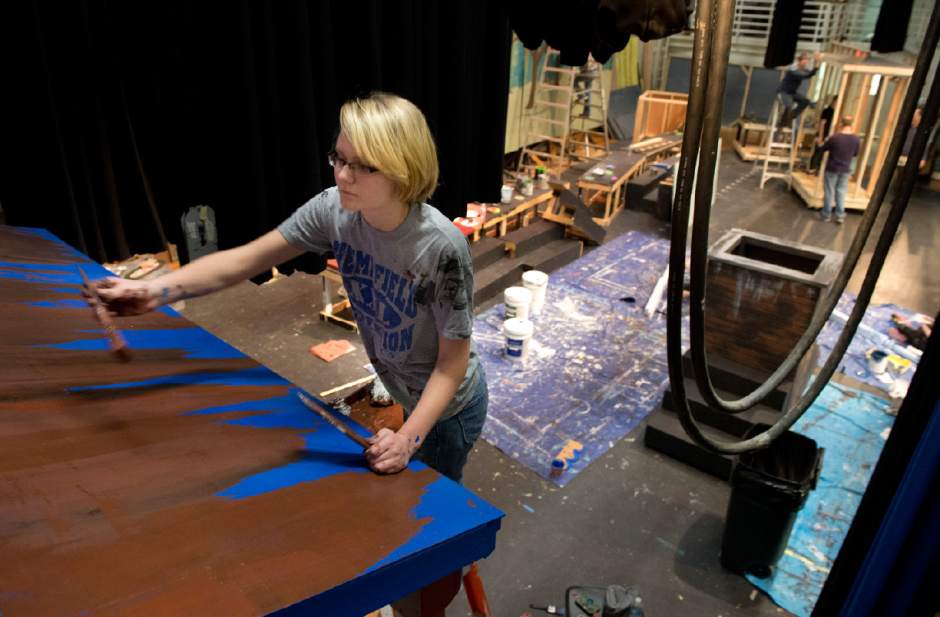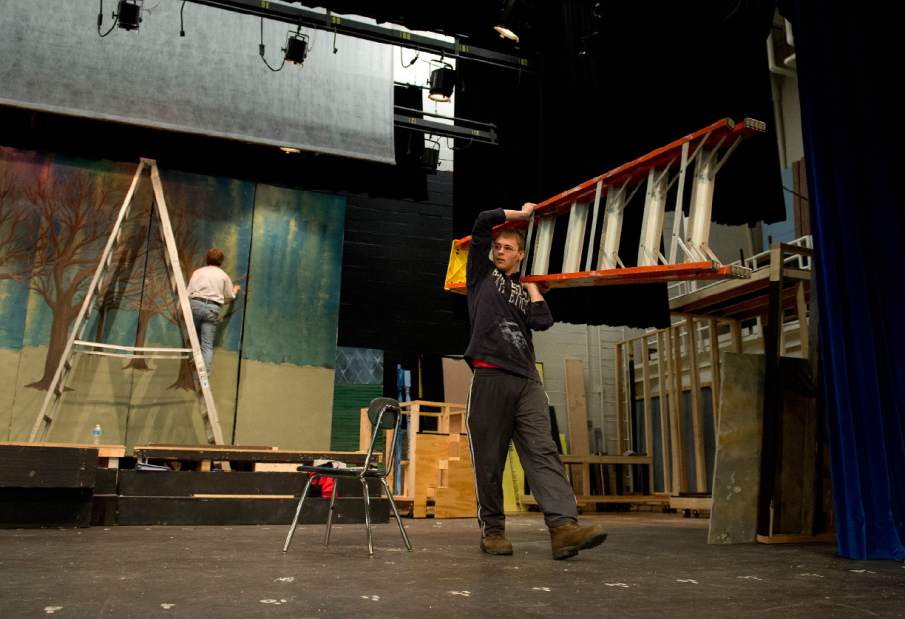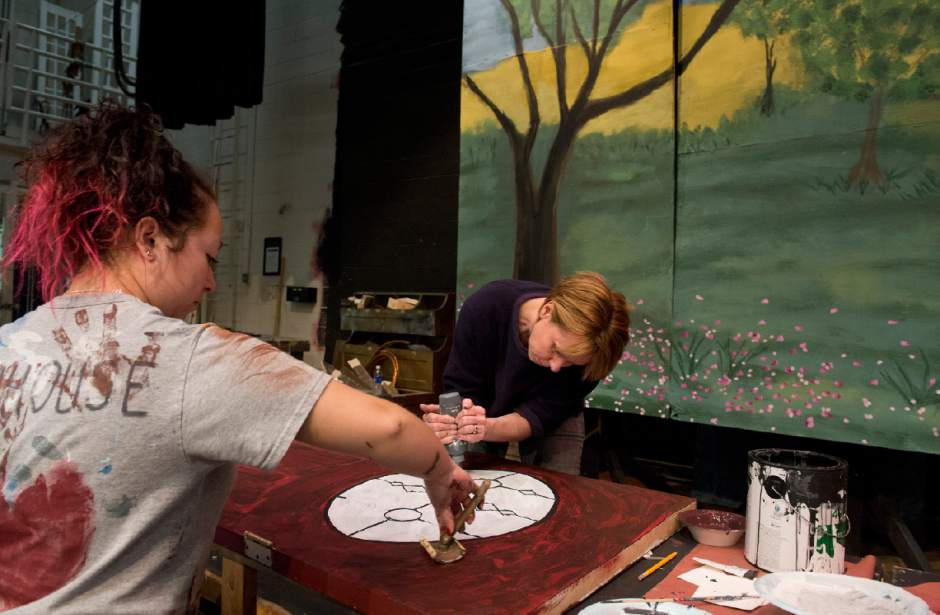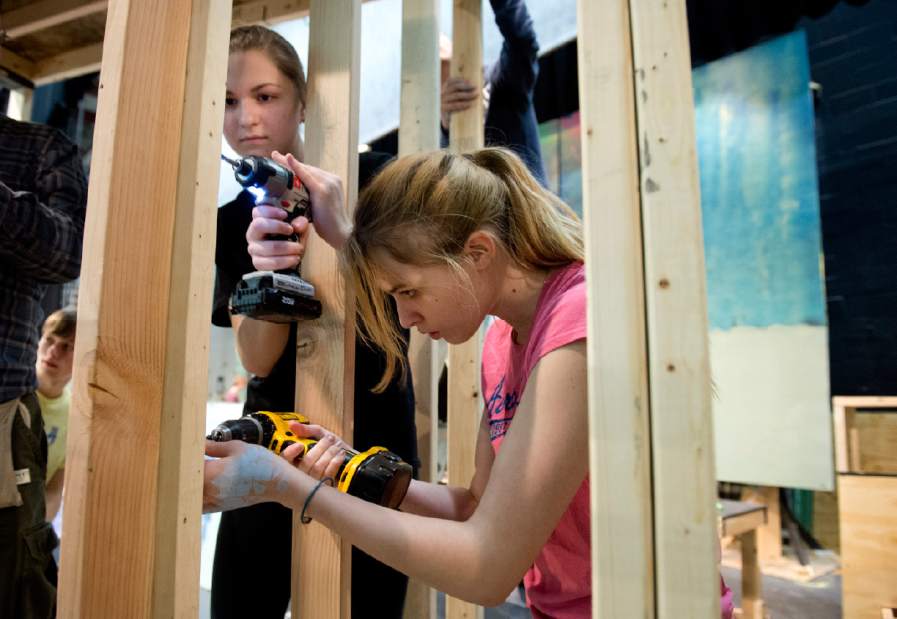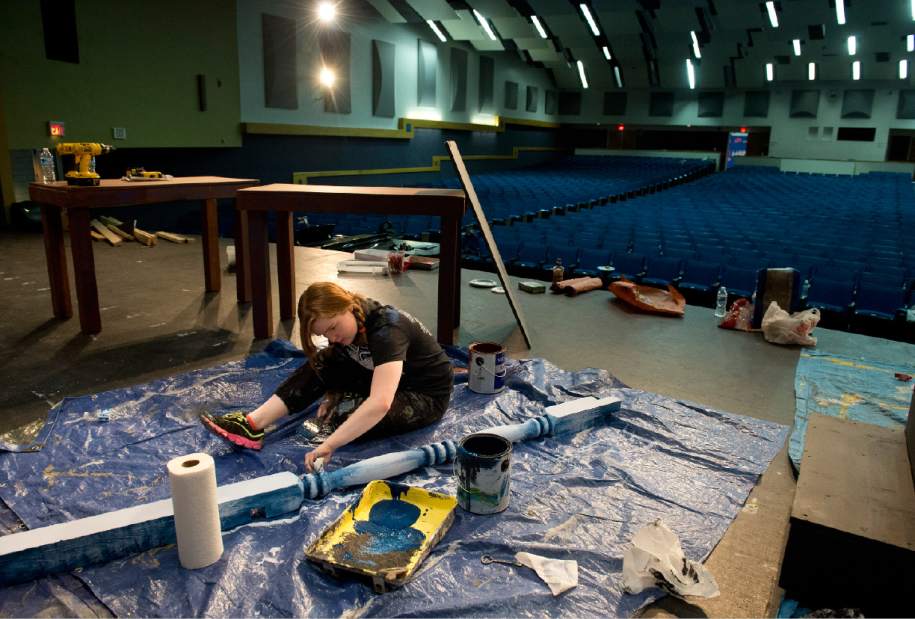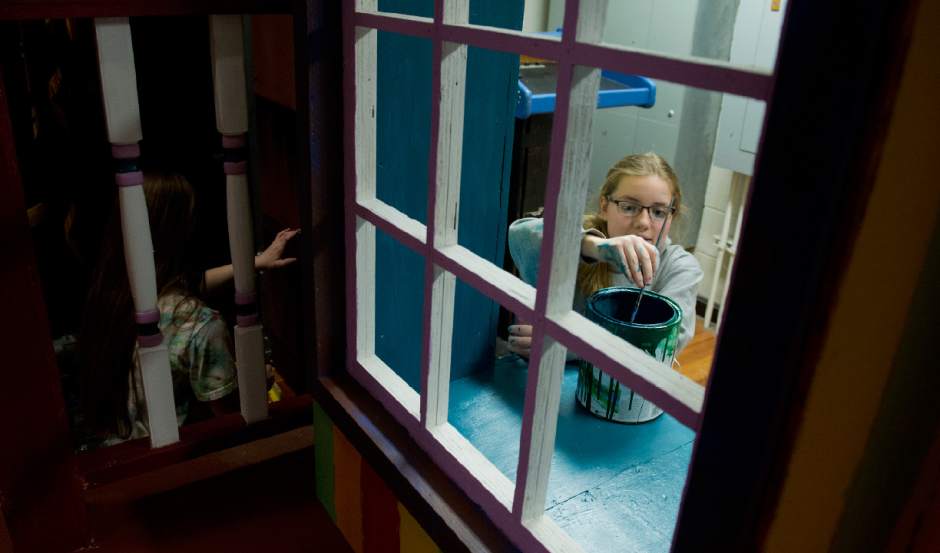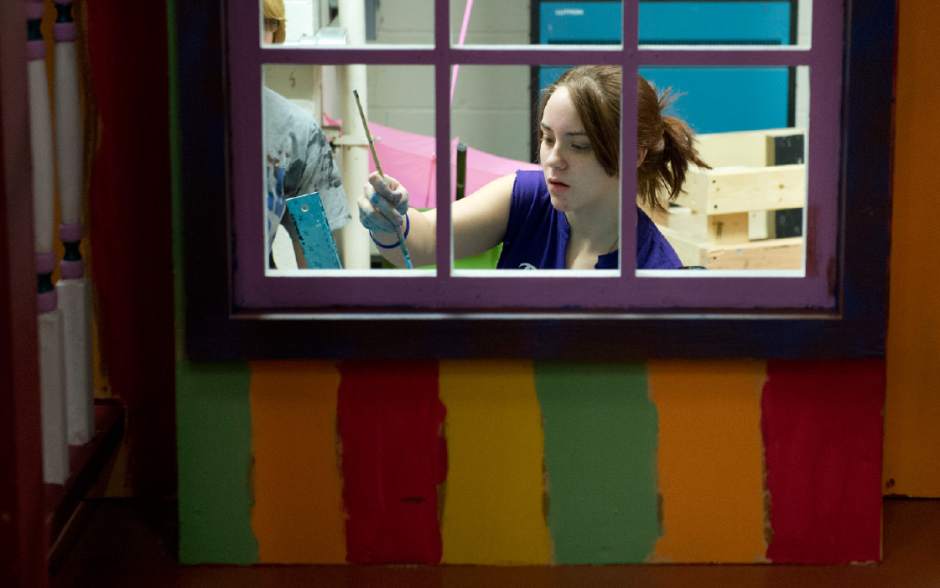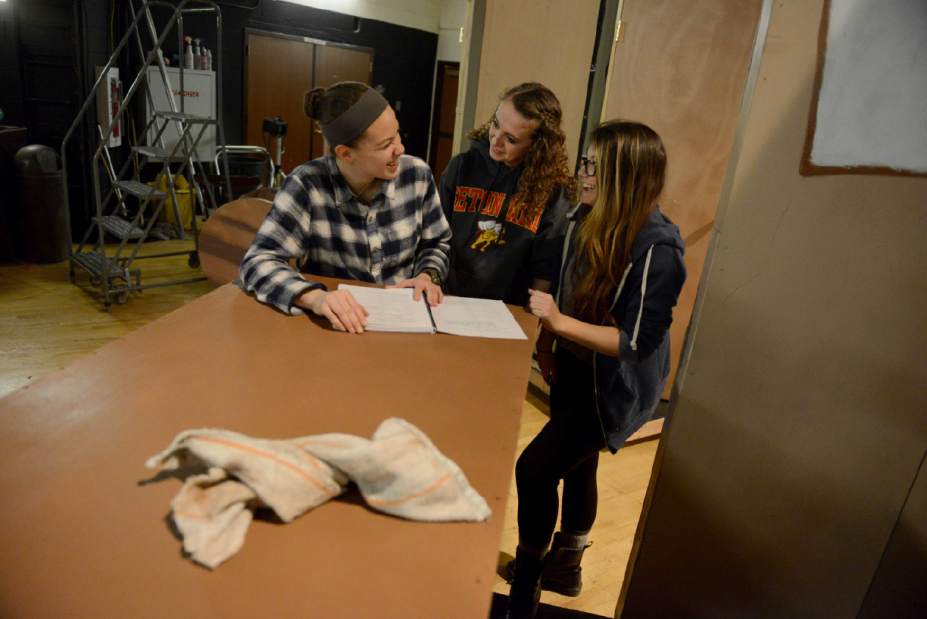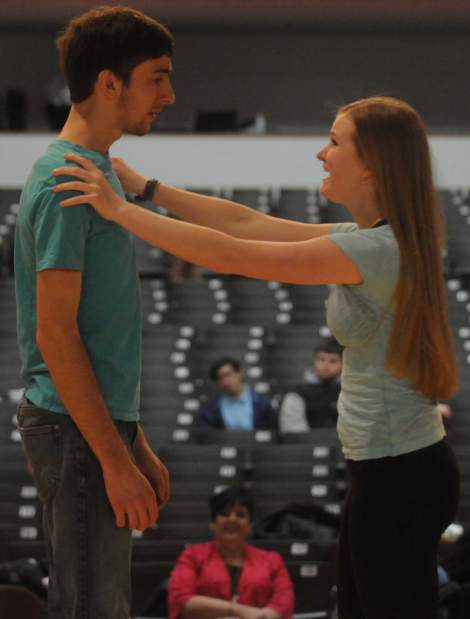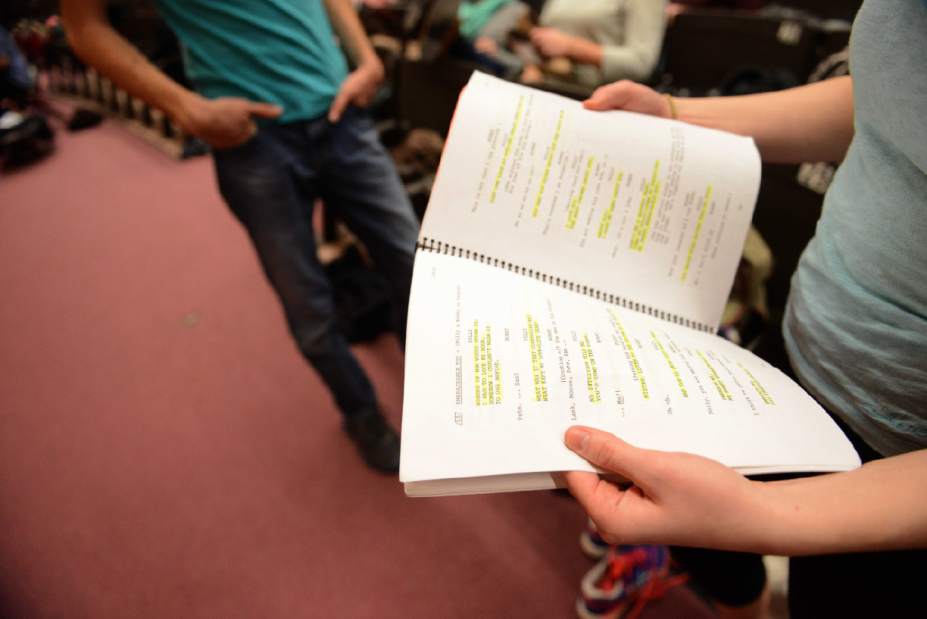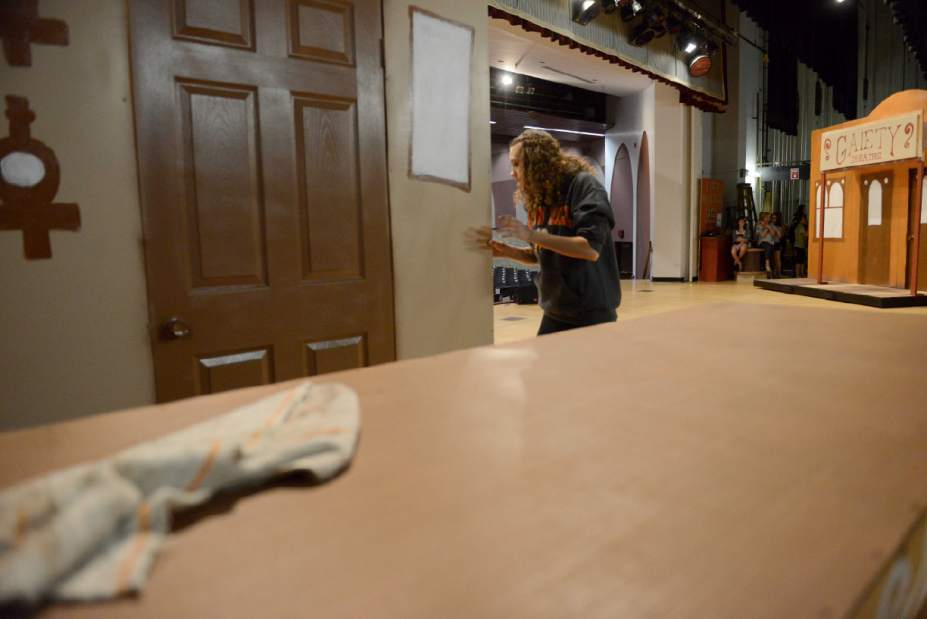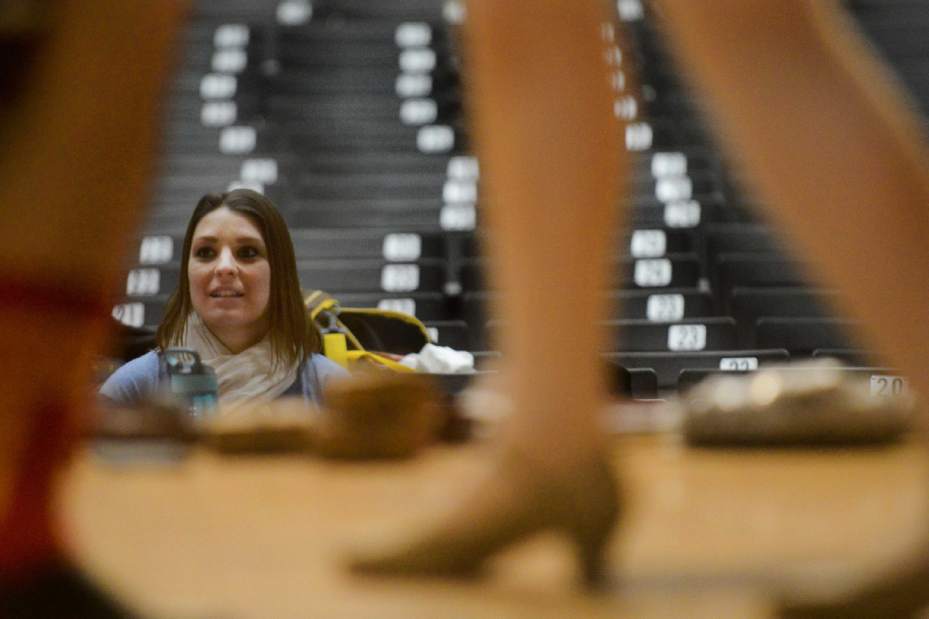Months of hard work go into musicals for Westmoreland County high schools
A good high-school musical provides its audience with an entertaining evening of singing, dancing and storytelling. What the audience doesn't see is the nearly yearlong process of bringing that musical to the stage.
“Most people would be surprised by most of the work that goes on behind the scenes,” says Linda Comm, director of the spring musical at Hempfield Area High School. “If we're doing it right, they have no idea that it was that much effort.”
This year, there are more than 200 people involved in Hempfield's musical, “Mary Poppins.” That includes the cast of about 100 high-school students and younger children and less visible participants including the stage crew, Comm and other adult leaders, parent volunteers and an orchestra that includes professional musicians, teachers, students and alumni.
“It takes a village,” Comm says.
That sentiment is echoed at other schools across the region. At Greensburg Salem High School, director-producer Sue Glowa and assistant director-choreographer Leyna Wright work as a team with seven other adults who handle everything from costuming, sets and props to music, lighting and sound. This year's musical is “Crazy for You.”
“We have a whole production staff,” Glowa says. “It's a big team effort to pull off a spring musical.”
It's not unusual for a production team to begin preparing for the next musical almost as soon as the curtain goes down on the current one.
“We start talking about what our next show will be at the end of the current show,” says Tracy Kelley, who has directed the spring musicals at Yough High School for the past 14 years. “The time commitment is huge.”
Kelley, along with the music director, choreographer and orchestra conductor, chooses the show each year. Their selection must be approved by the principal and school board before they can proceed.
After a musical is decided, the director spends time over the summer combing through the script for hints about props, sets and costumes. The script for “Mary Poppins” indicates that the play is set in 1910, so Comm spent hours researching the time period to find appropriate costumes, hairstyles and building styles. For further help, she read the original “Mary Poppins” book and watched video clips of other stage performances of the play.
“The movies are less helpful,” she says. It turns out that techniques that work well on film do not necessarily translate well to a live stage performance.
When school resumes in the fall, students are brought on board. Student involvement proceeds on two parallel tracks: cast and crew. Auditions are held in the late fall to establish the cast. At some schools, not every student who auditions is given a role, while at others, all are included in some way.
“We have a no-cut policy,” Kelley says. At Yough and Greensburg Salem, any student who wants to be in the musical is welcome.
This year, about 40 kids will appear in Yough's production of “Footloose.” This year's show at Greensburg Salem, “Crazy for You,” has 43 cast members and 20 students on the stage crew. At Hempfield, not every student who tries out can be offered a role. Comm says that each year, 80 to 100 students try out for 40 to 75 available roles. Some students withdraw after they realize the time commitment involved, and others opt to join the crew instead of the cast.
“This is not about talented or not talented, good or not good,” Comm says. “It's about ready or not ready.”
Rehearsals begin in January at most schools and are generally held several times during the week plus half the day Saturday. As the show date nears, they begin to rehearse the show in its entirety. The whole cast must be present, along with the crew, so that sets can be moved and lighting and sound managed.
“I try to utilize the time as wisely as I can,” Kelley says.
Depending on their roles, students in the cast must learn not only their speaking lines, but songs and dances as well. There are sometimes extra classes the cast must attend in addition to their regular rehearsals. This year, the choreographers at Greensburg Salem and Hempfield offered tap classes because both shows require all cast members to tap.
Greensburg Salem choreographer Leyna Wright began planning and choreographing “Crazy for You” last March.
“It's not just ‘Let's put a show together in three months,' ” she says. “It's a pretty long process.”
Katie Kertoy, choreographer for Hempfield's “Mary Poppins,” agrees. She says that unless a particular dance routine is specified in the script, it's the choreographer's job to create all the dances from scratch.
“It's a lot of work,” she says. “It's definitely a big commitment, but the payoff is so great that it's hard to say no.”
Likewise, student cast members feel that the time and effort they put into rehearsals is well worth it. Yough senior Branton Shawl has the lead role in “Footloose,” portraying avid dancer Ren McCormack.
“I love being able to be someone else for two hours on a weekend in a show and seeing how people react and enjoy what they're watching,” says Shawl, who has acted in Yough's spring musicals all four years of high school.
Outside of formal rehearsal time, Shawl and other cast members are constantly rehearsing on their own.
“I have to learn every line, all the songs, all the research behind the character, I go over the dances and play the music to remind myself of the songs,” he says. “It's a never-ending cycle of rehearsal when you're in a show, even if you're not at a rehearsal.”
Students in the crew, under the guidance of adult technical directors, give up a large portion of their evenings and weekends to dedicate themselves to the show. During the months when the casts are rehearsing, the crews begin building sets and working out behind-the-scenes logistics.
John Sweeney, Hempfield's technical director, is a volunteer who makes sure everything looks good and functions properly during the show. “We have a build crew that does all the building and painting, and a run crew that moves props and does sound and lighting during the show.”
Sweeney and the crew start their work the same day that the cast starts rehearsals, in the beginning of January. The build crew works Fridays after school and on Saturdays for two to three months, and then transitions into the run crew as full rehearsals start. Eventually, they are on hand during every rehearsal to move sets while the cast rehearses.
“Everything is on wheels,” Sweeney says. “And safety is always a concern — the safety of the crew and the cast. You're doing everything in the dark, and you have less than 10 seconds to change sets” between scenes.
“With 100 cast members and 25 to 30 in the crew, managing space backstage is an absolute challenge,” he says.
Greensburg Salem senior Brooklyn Di Lello began working spotlights for middle-school productions and is now student stage manager at the high school. As the show approaches, she spends four to six hours a day after school nearly every day overseeing the crew.
“That's what I really like, is directing the crew,” Di Lello says. “I really enjoy it, and I wouldn't trade it for anything.”
For every student involved in the musical, there is at least one parent or guardian helping to get them to and from practice, making sure they have what they need for their roles and providing tangible and intangible support at home.
“Our message to the parents is please don't sign off on having the children involved unless you understand it's a big commitment,” Hempfield's Comm says.
Some parents also volunteer to help sell tickets and raise funds, while others build sets, make costumes, style hair and makeup, design programs and help with publicity.
“We are lucky here,” Comm says. “We have so many people who are interested. The more people that are involved, the more fun it is.”
Many parents come back to help every year, even after their own children have graduated. Such is the case with Sweeney, who started when his daughter was a senior.
“I never did this in high school,” he says, “but I'm doing it now and loving it.”
For nearly everyone involved, the long hours and many challenges of producing a high-school musical are far outweighed by a passion for the work.
“People do this for the love of it,” Comm says. “For the love of the kids, for the joy of seeing them feel good about themselves and for what they get out of it.”
Cynthia Bombach Helzel is a contributing writer for Trib Total Media.

